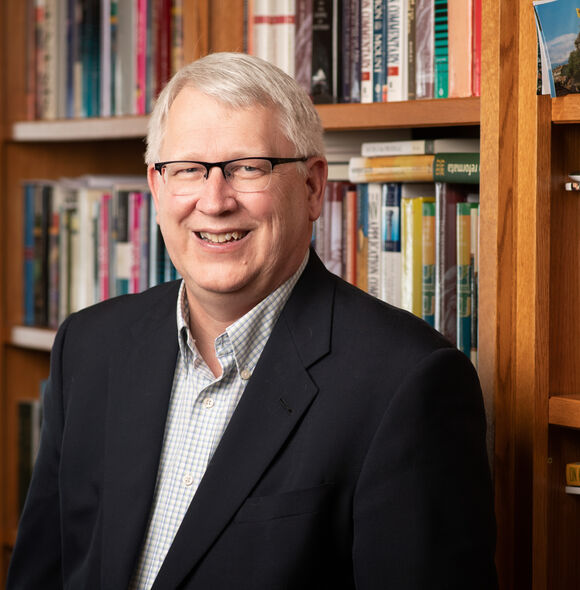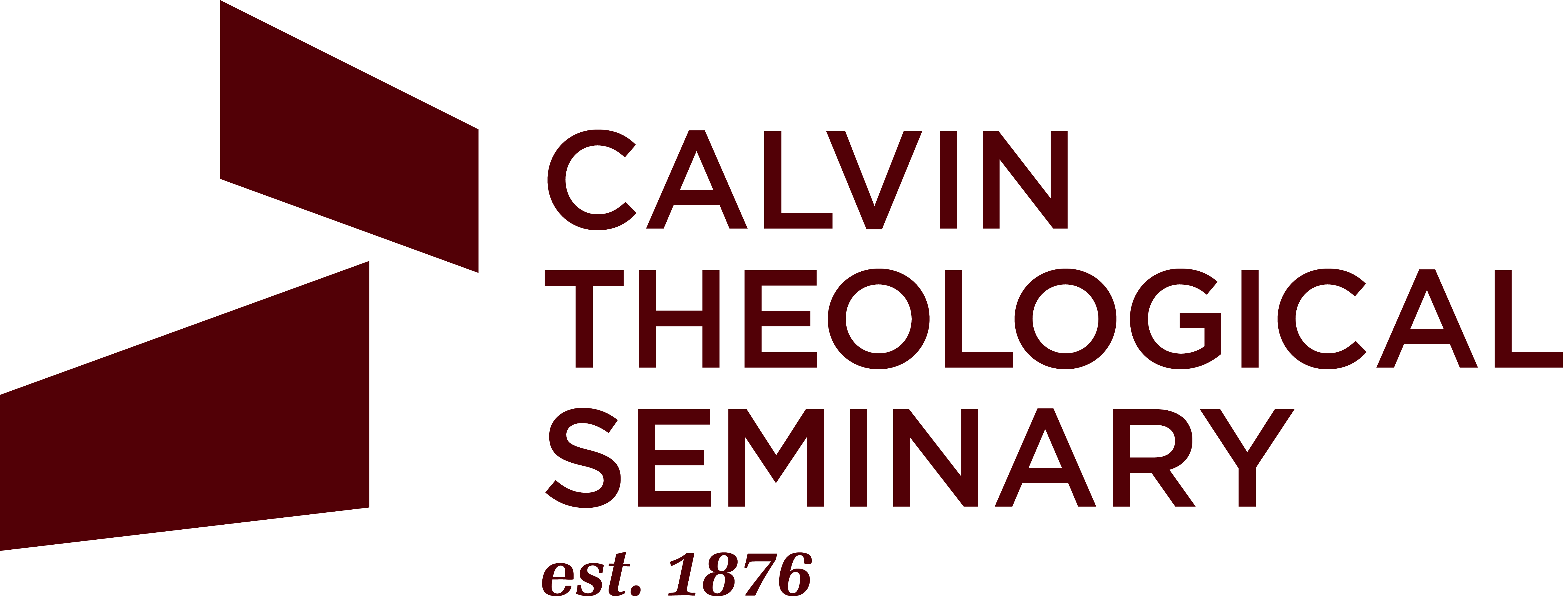Synod 2024, the Second Inaugural Address and Rock Valley, Iowa

Published by Jul Medenblik
President
This year, 2024, marked my 15th in-person Synod. I had the privilege to attend our denomination’s annual meeting in various capacities since 1990. I first served as an elder delegate, then a pastor delegate, and eleven times in my current role as President of Calvin Theological Seminary.
In all my years of serving, this was the first Synod I can recall delegates openly expressing their “goodbyes.” Many shared that they would not be able to return for Synod 2025, both because of their convictions and the convictions of their local church. The atmosphere was one of conclusion, clarity, and mutual respect for the process that brought us to this historic moment in the Christian Reformed Church in North America (CRCNA).
The main topic of this Synod was a continuation of the discussion and decisions from Synods 2022 and 2023 on how the Christian Reformed Church in North America (CRCNA) would handle the topic of same-sex relationships as a confessional church.
At the heart of this conversation is the CRCNA Human Sexuality Study Committee Report (HSR). This report in full can read here: https://www.crcna.org/sites/default/files/human_sexuality_report_2021.pdf
Synod 2022 recommended the HSR to the churches as providing a useful summary of biblical teaching regarding human sexuality. Synod also decided in 2022 and affirmed in 2023 the confessional nature of the definition of “unchasity” in Heidelberg Catechism Question and Answer #108. Specifically, that Synod concluded that “unchastity” in Heidelberg Catechism Q. and A. 108 encompasses adultery, premarital sex, extramarital sex, polyamory, pornography, and same-sex relationships and that this interpretation has confessional status.
These subjects and this discussion has been a part of a longer story than just the last two Synods. The stance of our denomination on these subjects has been debated, discussed, and studied for years and it was out of these debates that the Human Sexuality Synodical Study Committee was formed.
Since then, many have shared heartfelt, sometimes heated, stories and perspectives on these sensitive, personal subjects. With so much at stake, the reality of implementing a stance and process on these issues meant that many have felt the sting of disappointment, disillusionment, and division.
However, as the process unfolded, I came to a greater realization that the CRCNA would soon join other denominations – Anglicans, Episcopalians, PCUSA, Methodists and the Reformed Church in America – that have had issues of same-sex marriage and treatment of LGBTQ persons strain and then break denominational bonds.
This realization came from understanding that, for many, the subject of human sexuality cuts deeply into our personhood. Many on both sides see the subject in such a way that compromise or accommodation is perceived as dangerous – or even a betrayal of their central convictions. At the same time, let us not doubt that both sides are seeking to live out their convictions in faithful ways, as witnesses for Jesus Christ, striving to embody both grace and truth.
I have heard people say over the last few years that the CRCNA needed a marriage counselor. At this point, it may be more accurate to say we need a divorce lawyer. As a former lawyer and as a pastor I’ve walked with people where bonds were broken, but important questions still remain to be answered.
- “How do we see each other?”
- “How do we treat one another?”
- “How do we work side by side with each other?”
In the Leadership in Ministry class I teach here at Calvin Seminary, we discuss the topic of pastoring during a storm. A model for ministry that I present are the words and wisdom of U.S. President Abraham Lincoln from his Second Inaugural Address. His words to a country torn apart by war can still provide insight and challenge us. Here is an excerpt from that address:
“Both read the same Bible and pray to the same God, and each invokes His aid against the other. … The prayers of both could not be answered. That of neither has been answered fully.”
At times, I have spoken of past church splits and noted that on a Friday fall evening, parents who may no longer worship together on a Sunday will stand next to each other and cheer together for their local Christian school high school football team. I now think that this picture is too small.
As Synod 2024 came to a close, floodwaters rose in Rock Valley, Iowa, and other parts of Northwest Iowa, South Dakota, and Minnesota.
Maybe the better, bigger, and more Biblical picture is churches who recently were in the same denomination responding to this tragedy together, encouraging their church members to work side by side with agencies like World Renew to restore and bring hope to these communities where our common Reformed heritage still thrives. I hope that though many of our friends and colleagues feel a very real need to say “goodbye” to our denomination, we can still see the good and real work of Jesus in each other.
The challenge is real. The cause of God’s mission is still before us. Maybe we in the CRCNA can provide a different picture of how a church denomination deals with local church separations while continuing to serve God’s mission in the world together.
It was that Biblical vision that Abraham Lincoln connected to when he concluded his Second Inaugural Address (just 41 days before his assassination) with these words that Frederick Douglass later reviewed as being like a sermon –
With malice toward none, with charity for all, with firmness in the right as God gives us to see the right, let us strive on to finish the work we are in, to bind up the nation’s wounds, to care for him who shall have borne the battle and for his widow and his orphan, to do all which may achieve and cherish a just and lasting peace among ourselves and with all nations.
Would that not bring a brighter witness for Jesus Christ to the World and to the Church?
Link to Abraham Lincoln’s Second Inaugural Address
For further reading and reflection, I recommend Ronald C. White’s book, Lincoln’s Greatest Speech: The Second Inaugural.
Share
Visit Calvin Theological Seminary’s Campus
We can’t wait to host you on campus! Schedule your visit today, or, if you need more time to find a date that works for you, please request information so we can continue the conversation about supporting your calling!
